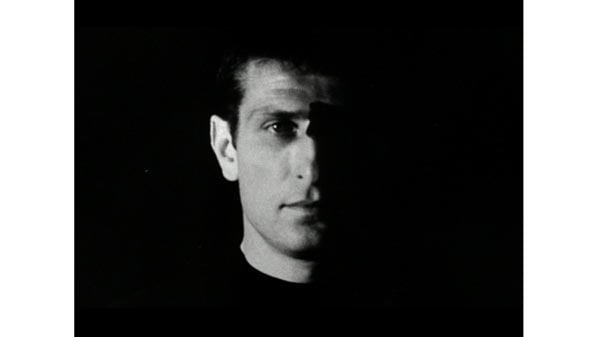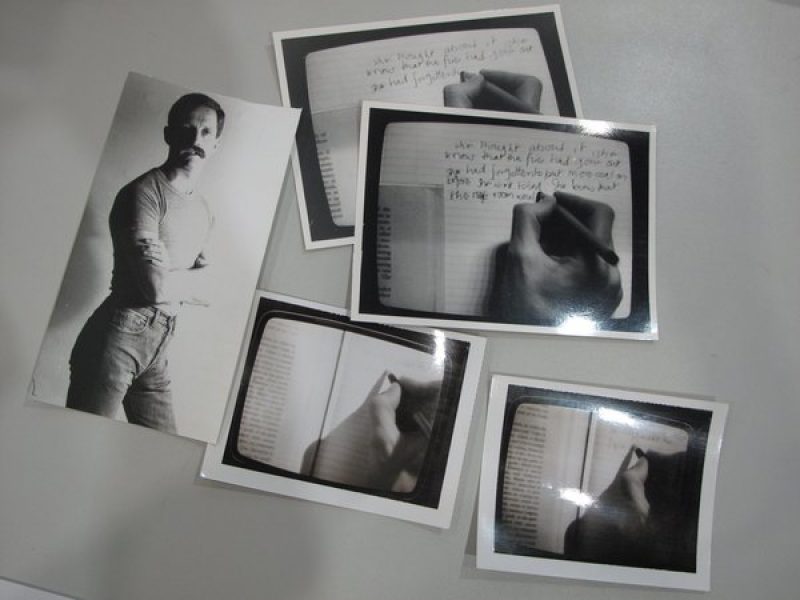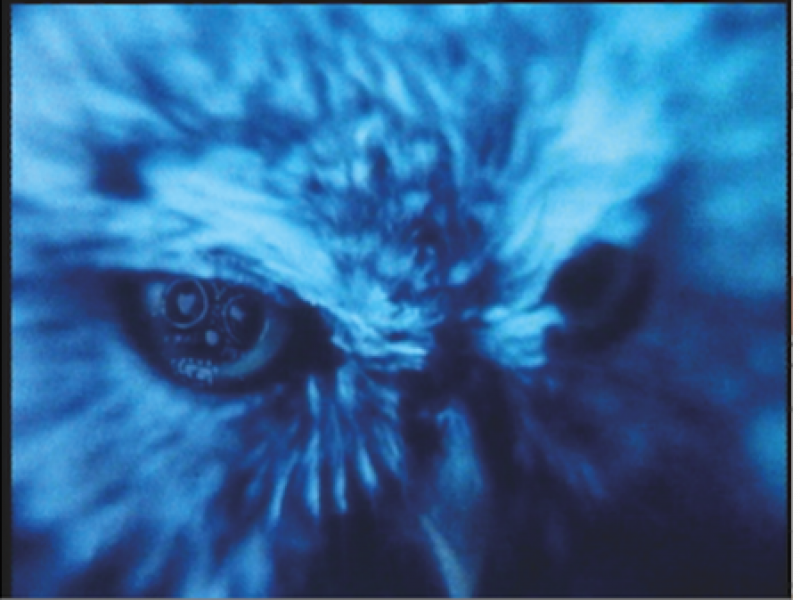In his Guardian obituary for Germano Facetti, the famous Penguin cover designer who died in 2006, the design historian Richard Hollis mentioned a little-known fact: Facetti had once made a film, in collaboration with the photographer Paolo Gori, called Victoria Etcetera. It was Facetti’s only film as director, although he had also appeared in his friend Chris Marker’s famous short La Jetée. Richard Hollis helped us track down a print of the film and the rarely-seen Victoria Etcetera is now showing online.. To commemorate this we publish Gori’s recollections of making the film and his friendship with Facetti.
“Germano was an impressive presence: very handsome and charming, bright, even somewhat scatterbrained (hyperactive in contemporary terms), his gifts were most apparent in brainstorming sessions where he drove everybody else’s minds at an accelerated rate, helped create novel concepts and fresh ideas, generous with his time and never interested in taking credit for his contribution (I remember in this context his infectious enthusiasm and brilliant suggestions in the making of a memorable book on the British Art scene in 1965, ‘Private View’, barely and unfairly acknowledged in an almost invisible last page note, which saddened him only a bit, and that just because of his sense of fairness).
He was an avid reader of all sorts of unlikely publications ancient and new, always with a critical, sharp nose for making inferences and reading through the lines, ecumenical in spite of a clearly from-the-left guiding light. Gifted with a prodigious visual memory, he could pinpoint the exact painting, poster, ad, cartoon that could illustrate a specific point, remembering as well the museum, library, old book store or hemerotheque where it could be located.
And that’s how Victoria Etcetera happened. It was entirely Germano’s idea and all the iconography and texts from which it was assembled (Victorian monuments vs. Doré’s astonishing reportage on real life in Victorian London, news-cuttings from press of the time or excerpts from Kipling’s Song of the English vs. Taine’s sociological survey) were proposed by him. I only contributed a few quotes from Mumford, and of course also helped with the news-cuttings, especially from the Illustrated London News.
I loved the idea from the start, fascinated by the wealth of iconography in the friezes of Victorian buildings to which I had never lifted my eyes, the ironic juxtapositions that Doré’s record allowed, the dialectic interplay of Taine’s damning statistics (certainly known to Doré) vs. the official attitudes or plain lies in the press, or Kipling’s paean.
I had just seen a short film by an American refugee in Paris (a brilliant exponent of ‘cine-verité’, you must know whom I’m talking about), a SF love story made on a shoestring budget with still photographs (by the way, in one of the last shots, where some impassive handsome people of a future time, black turtlenecks on black background, witness unmoved the tragic end, one of them is Germano) and was inspired by it. So I went to work on the stills of monuments, eventually processed them with a printing technique that to my taste helped these contemporary documents blend in with Doré’s engravings that I reproduced and blew up to a standard 11×14. We could not afford a rostrum camera (the lovely movements anyone can produce this days with a little bit of software! But then it’s also a good thing that one’s efforts end up dated by the technical limitations of his time…) so I rented a 16mm. Arri with a good zoom and a plain tripod (no fluid heads then, not that I knew of) and attempted camera movements that even to a beginner cameraman like myself seemed rather crude and seldom to the point.
I then attempted to edit some sequences, got rather lost, finally hiring the help of a consummated editor, the very likeable Michael Johns, who generously claimed being impressed by what I had tried to do, while being obviously disconcerted. So luckily he took over. Meantime Germano was busy directing the actors who interpreted the various voices (“queen Victoria” speaking with a heavy German accent bowled me over).
All of this over a span of about a year (self financed labour of love done in our spare time) and the time came for me to leave London, and left the hot potato in Germano’s hands. While living in NY I received a rough cut (no sound) that surprised me by a smoothness I had never believed possible with the rushes I had left behind.”
Paolo Gori, Mexico, 2006






